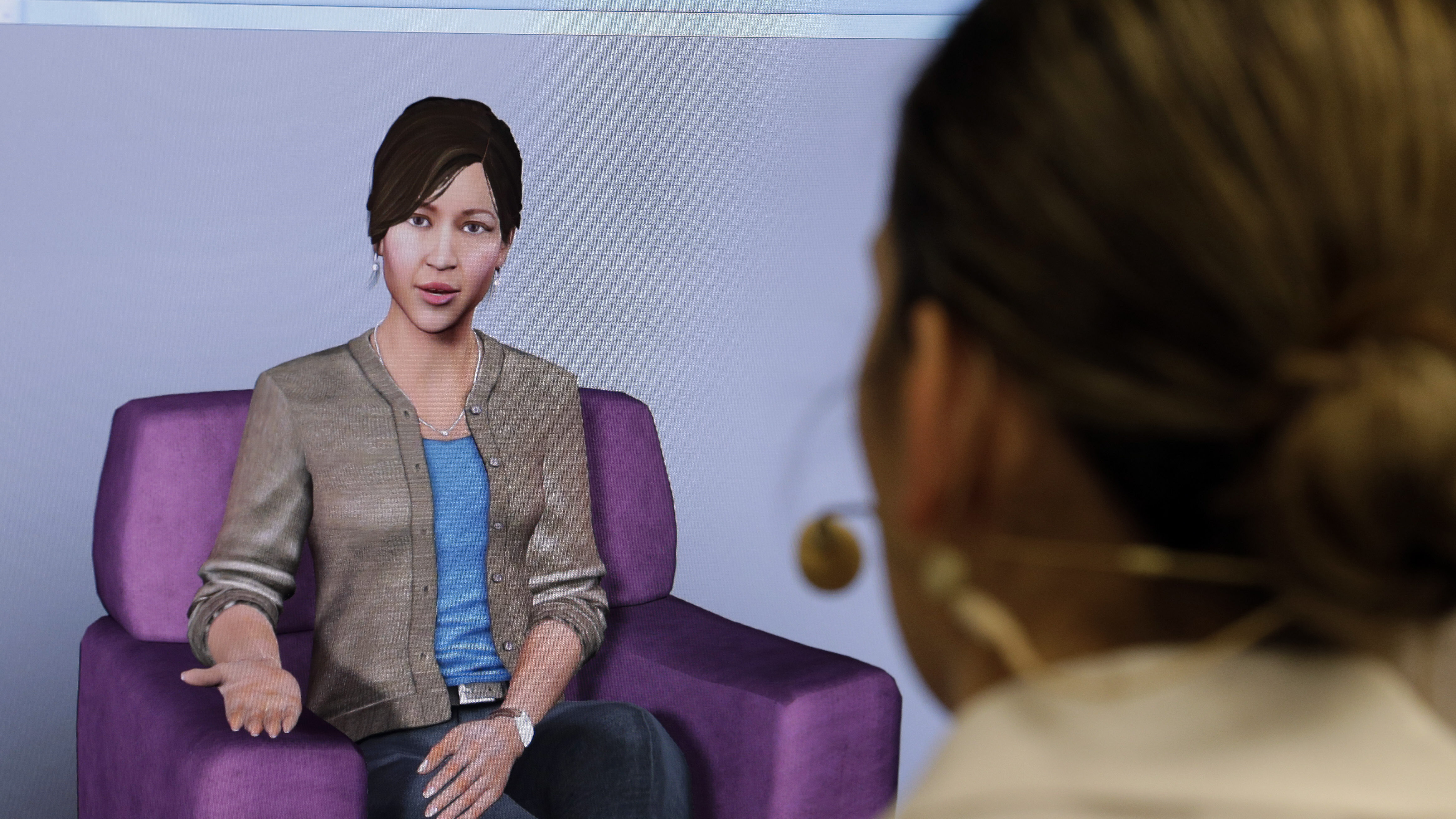Artificial intelligence may be able to help with your mental health
Apr 15, 2024, 1:30 PM

In this file photo from May 2, 2019, Cadet Cheyenne Quilter works with a virtual reality character named "Ellie" at the U.S. Military Academy at West Point, N.Y. Artificial intelligence is spreading into health care, often as software or a computer program capable of learning from large amounts of data and making predictions to guide care or help patients. (AP Photo/Seth Wenig, File)
(AP Photo/Seth Wenig, File)
,SALT LAKE CITY — Will we ever hear, “The AI will see you now” when we need a doctor? There’s a chance that artificial intelligence could be something that helps in mental health therapy.
“It’s not that AI is going to replace doctors, it’s that doctors are going to have to learn how to practice medicine in partnership with AI,” explained Dr. Jeremy Kendrick, associate professor at the University of Utah School of Medicine and practicing psychiatrist. “I don’t think we’re going to get to the point any time soon when the human part of this is removed.”
Kendrick sees artificial intelligence as an important tool for diagnosing patients. That’s the kind of thing that machine learning can help with.
“But the human side of medicine, caring for the individual,” he said, “while the AI models can emulate empathy pretty well, it’s still no replacement for the real deal.”
Can artificial intelligence help with access?
There have been multiple reports in recent years about the challenge of access to mental health care.
“If we can use technology to help, everybody is on board with that idea,” Kendrick explained. “It’s not a matter of if. It’s more a matter of when it will be appropriate and how to appropriately utilize the technology.”
The doctor sees two main hurdles. The first is getting technology to the point of performing as a human therapist would.
“You can go back to the 1960s, there was a program called Eliza,” Kendrick explained. “It was a computer program written back then. Eliza basically regurgitated back [to] what you said in a reflective way, which is what therapists do. It was actually quite convincing.”
Kendrick explained that some types of therapy, like cognitive behavioral therapy, focus on education. Their goal is to teach the patient a certain set of skills.
“Computers can do a good job of that,” he said. “They can give information. The problem starts to happen when a question is asked of the computer that it hasn’t been programmed how to answer. Humans are unpredictable people. So that happens pretty often.”
AI models make stuff up
The second main hurdle the doctor sees deals with generative AI models that are based on a world of information. Those are more human-like in the way they respond.
“But when it comes to a question that involves critical thinking on the part of the therapist, considering lots of different variables about a patient’s history, getting an appropriate answer is hit or miss,” said Kendrick.
There have been times when these AI models just make stuff up. Unless you can fact-check it, you couldn’t rely on the AI.
“If I’m a patient asking AI for help in a certain area,” Kendrick explained, “the information they’re going to give me will sound very convincing, but it could be completely wrong.”
Right now, if you ask a general AI model like ChatGPT a question that it recognizes it doesn’t have the capacity for, like mental health, it will generally say, “I’m not equipped to answer that, but here are some resources.”
Therapy companies are working on training their own AI models to identify high-risk populations and lead to quicker intervention.
“Is the technology really ready to be trusted with something as sensitive as somebody’s mental wellness?” Kenfrick asked. “I think the answer to that is an overwhelming no, but it’s advancing so quickly.”
Sharing your mental health struggles with artificial intelligence
Undoubtedly there are some people, including teenagers, who may be reluctant to speak openly about their struggles and concerns with a therapist in person.
“Any time you decrease the barriers in mental health, whether that’s stigma or having a parent in the room,” Kendrick shared. “If a teenager would feel more comfortable describing their concerns and their problems to a piece of software, I can absolutely see that as a great bridge to helping them get access to care.”
The doctor added, “I think what that technology does with that very sensitive information is the most important question. You just have to be careful.”
Kendrick sees huge opportunities with AI in his field.
“I’m not scared about AI,” he said. “I don’t see it replacing me as a physician, I see it augmenting what I am able to do. I think it will lead to better patient care, better access to care.”













